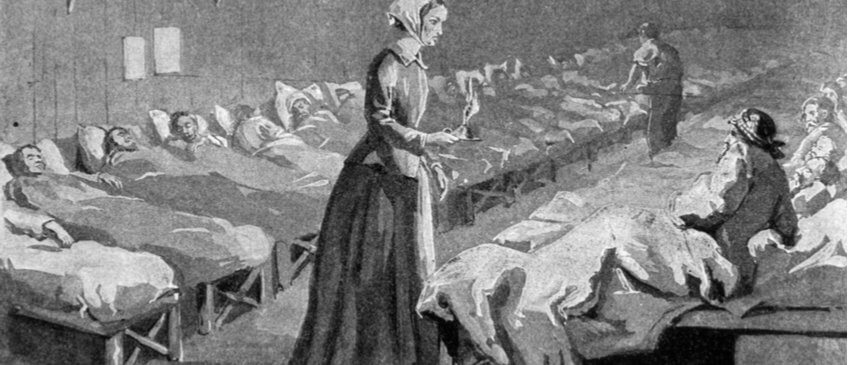
Who is the Founder of Professional Nursing?
The field of nursing is vast with many specialties and occupations. It’s hard to imagine that it was once a field consisting of one small team of nurses. Florence Nightingale, usually called the mother of nursing, and her team helped create the groundwork for nursing today.
When Did Nursing Begin?
While Great Britain was at war in 1854, Nightingale was tasked with assembling a team of nurses to treat injured and sick soldiers in the Crimea. She found a scene of horror as hobbled and wounded soldiers lay on the battlefield. Rats, bugs, and contaminated water surrounded them as they waited for help. Nightingale began thoroughly cleaning each soldier. She also started checking on them at different hours of the day. After nightfall, she carried a lamp with her while she was attending to the soldiers. The soldiers dubbed her as “the Lady With the Lamp,” and “the Angel of the Crimea.” During her time on the battlefield, the death rate decreased by two-thirds. When she returned to England, she wrote “Notes on Matters Affecting the Health, Efficiency and Hospital Administration of the British Army” that would later be turned into a book. The book was then used to help establish a Royal Commission for the Health of the Army in 1857.
An Education in Nursing
Nightingale helped fund the St. Thomas Hospital three years later and the Nightingale Training School for Nurses within it. In 1873, three nurse education programs were started:
- The New York Training School (now called The Bellevue School of Nursing)
- The Connecticut Training School (which opened with just 4 pupils)
- The Boston Training School (today’s Massachusetts General Hospital School of Nursing)
All three schools were based on the teachings of Florence Nightingale and are considered to be the first schools of nursing education.
Two nursing organizations were also established in the 1890s and are still in operation today: The American Nurses Association and The National League of Nursing Education. During the 20th century, state nursing associations worked to help pass nurse registration acts. The acts also provided a proper title for nurses: registered professional nurses (RN).
Nursing struggles
Although nursing had several successes during its early years, there were still challenges it needed to overcome. Most hospitals hired a small number of graduate students and instead used them for patient care labor. Many nursing school graduates depended on private nurse employment by individual patients. It wasn’t until the mid-20th century that hospitals began hiring nurses to be a part of the staff as full-time health care providers.
Nursing Today
Today, nursing continues to grow alongside the fluctuating needs of patients and the healthcare industry. With nursing specialties and advanced degrees becoming more prominent, the possibilities of the nursing field are endless. It’s hard to imagine that all of this stems from one small team of nurses led by Florence Nightingale. Because of her intuition and determination, nurses and nursing students today can enjoy a vast field to progress in. Check out Ardor Health’s job listings for available positions to see if you can become a part of a continuously growing profession today.


 July 24, 2023
July 24, 2023


